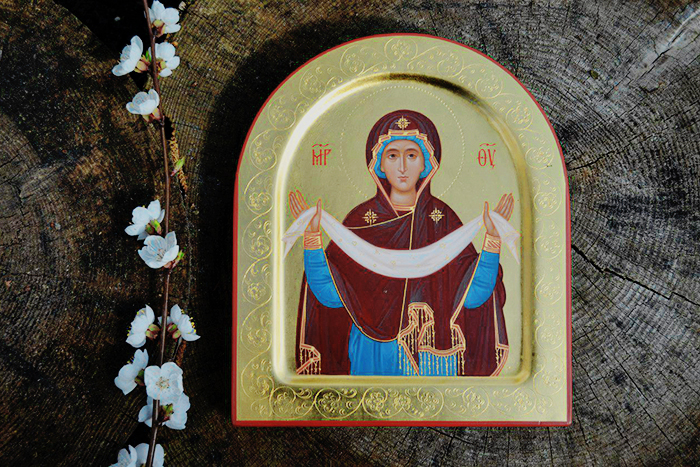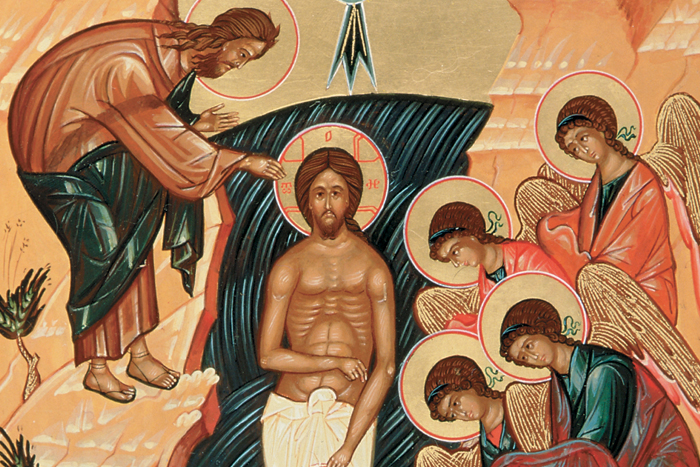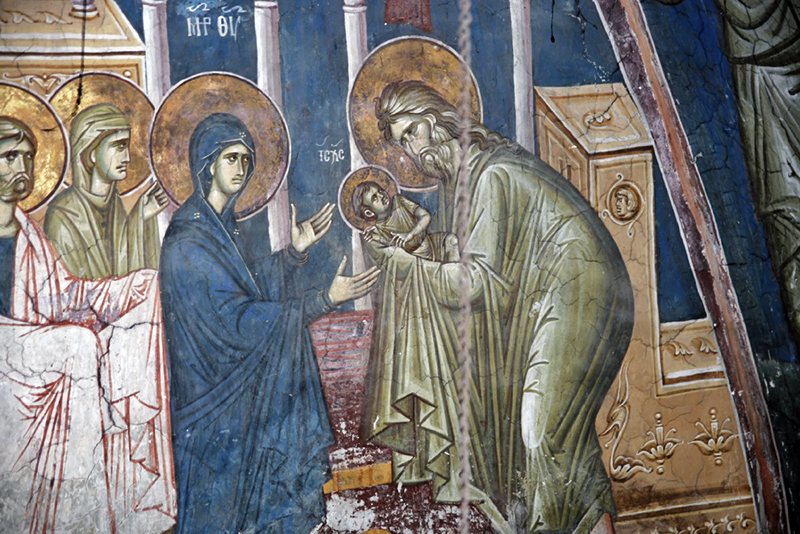
The feast of the Protection of the Mother of God is one of the most favorite yet paradoxical feasts for Russians. It is a paradox because, according to one version of history, on this day more than 1000 years ago the ancestors of today’s Russians attacked Constantinople and would have taken it, had not the Mother of God intervened. Father Valery Dukhanin contemplate this “celebration of defeat.“

The feast of the Protection of the Mother of God is a feast very warm and dear to us, because in it is expressed the special closeness to us of the Most Pure Virgin. She spreads her veil over all those who pray, regardless of how righteous or pious we are, if only we turn to her with our whole heart.
My spiritual father, Archimandrite Iliya (Reizmir), spoke of a situation with his spiritual daughter Lydia who was suffering from breast cancer. Her operation didn’t help, and she was completely depressed, and being alone in the ward, she began to pray: “Lord, I believe—why do I suffer so?” At that moment the Mother of God herself appeared to her as she is depicted in the Kazan Icon, and said: “Lydia, why are you despairing? You are not forsaken.” Although the doctor released Lydia home as hopeless, literally a few days after Confession, Communion of the Holy Mysteries and Unction she was completely healed. The Mother of God did not leave her. She knows human sorrow and always intercedes for those who sincerely ask from their hearts.
Generally, the meaning of the feast of the Protection is impossible to explain rationally or reasonably, but is experienced and felt by the heart as the relationship of a caring, loving mother with her own children. A mother gets up at night to check on her child, and if the child is sick, then the mama doesn’t pity herself and will not rest until she has taken every measure that her child might recover. And as children open to their mothers their childish sorrows, feelings and desires, so we can reveal to the Most Pure Virgin all our troubles and to her alone we can turn then when we have no one else to turn to. And she will cover us. Her veil is prayerful care for us, it is the grace of God given to the Holy Virgin as to the very closest to God, and by this grace she is ready to protect us always.
Russia has always honored the saints, especially those dear to the common people: Nicholas the Wonderworker, Sergius of Radonezh, Seraphim of Sarov, Matrona of Moscow. But dearest of all is the Mother of God. In Russia there was always informal, heartfelt veneration, like as to your birth mother, who you can turn to with any trouble, and Russia has always been under the veil of the Mother of God. This is why in every Orthodox home in Russia amongst the icons there is a special place dedicated to the image of the Mother of God.
There are different traditions about the past event in Constantinople, when in the Blachernae church the Most Pure Virgin appeared and extended her veil over the supplicants. There is the hypothesis that the Byzantine capital was besieged by our ancestors, such that the Byzantines were delivered from them only by the intercession of the Mother of God. But Russia at that time remained as yet unenlightened by the Christian faith, and had our ancestors been permitted to seize Constantinople, the city would have been devastated and many people killed. The Most Holy Virgin did not permit the spilling of innocent blood. To the pagans it was not given to ravage the Christians, but instead they were themselves subsequently lead to the glory of the Christian faith, likely also by the prayers of the Mother of God. In Baptism we acquired nearness to the Virgin Mary and therefore we take the feast of the Protection of the Mother of God as a witness of her love for those who pray, no matter the past military-political circumstances.



